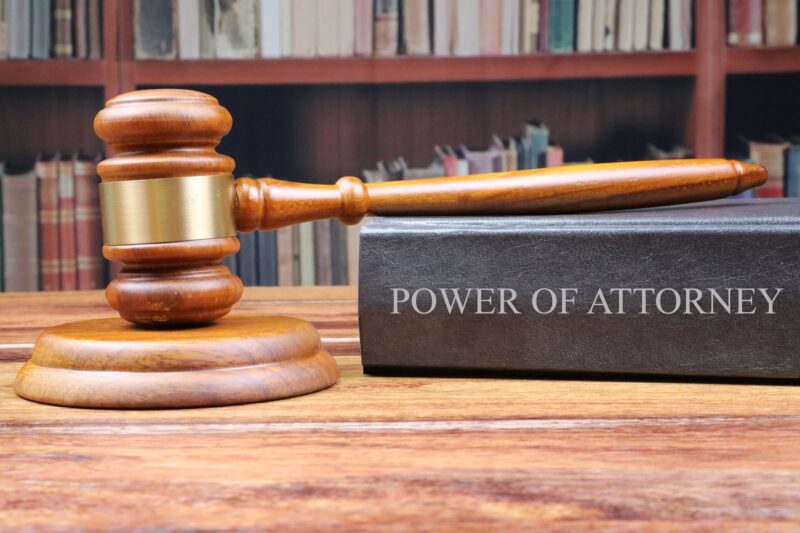Establishing Power of Attorney
August 9, 2023

An important consideration for estate planning is a power of attorney.
What is a Power of Attorney?
A power of attorney is a document that authorizes someone to act on your behalf. The person giving the power is known as the principal, and the person receiving the power is known as the agent or an attorney-in-fact. Through a power of attorney, the agent is allowed to make decisions regarding specified matters such as the principal’s healthcare, property, financials, and/or investments. There are several types of powers of attorney, with each type useful for specific needs. The following are some of the most common types:
General Power of Attorney
A general power of attorney grants the agent broad authorization to handle all matters allowed by the law, including financial, medical, and legal matters. This type is generally used by those who require assistance in the managing of their affairs due to old age, injury, travel, or illness.
Durable Power of Attorney
A durable power of attorney goes into effect as soon as the principal and the agent sign the document, and it continues even after the principal becomes incapacitated. This power remains in effect throughout the principal’s lifetime until they die or choose to revoke the power.
Springing Power of Attorney
A springing power of attorney only goes into effect once the principal becomes incapacitated. This type allows the principal to be in sole control of their assets while mentally capable, and then the power transfers over to the agent if the principal is unable to make decisions for themselves.
Every type of power of attorney is only in effect up until the death of the principal, after which the principal’s estate will be managed according to their will.
Why Should I Establish a Power of Attorney?
The main purpose of estate planning is to ensure that there are measures in place to protect yourself and your assets in the event you become incapacitated. Therefore, assigning a power of attorney allows for sound decisions to be made if you no longer have the physical or mental capacity. The agent will manage your assets as per your wishes, providing you peace of mind.
A power of attorney may also be useful for those who have several affairs to handle. This authorization allows you the flexibility to travel and focus on other pertinent matters such as your health, family, other businesses, etc. An agent would manage the buying and selling of assets without your presence, yet still adhering to your guidelines and stipulations.
A power of attorney is a very useful document, but it is best to consult with an estate attorney prior to giving any authorization to someone over such important matters. Our knowledgeable estate lawyers at Ball Eggleston will ensure that you fully understand the legal implications of assigning a power of attorney so you have an estate plan which fulfills your specific needs and goals.